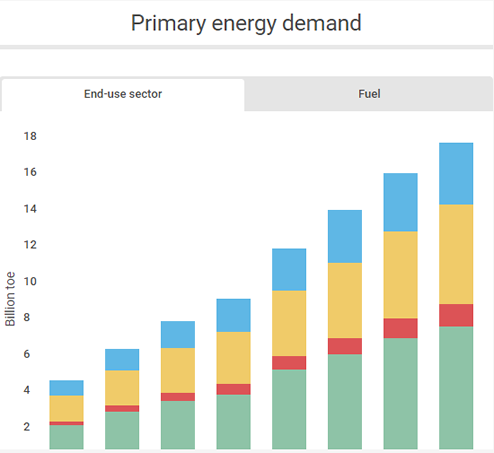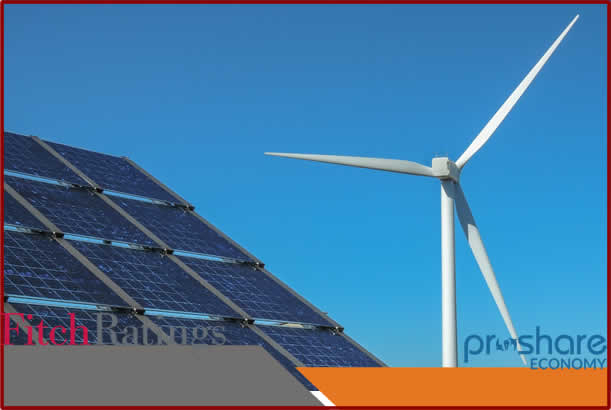Friday, April 20, 2018 /02:18 PM / Fitch Ratings
Major oilcompanies' investments in renewables businesses are likely to provide a usefulhedge to secure positions in the fledgling alternative energy industry, ratherthan be a radical step to transition away from traditional businesses, FitchRatings says.
So far theseinvestments have been incremental, especially compared to the annualmulti-billion dollar capital expenditure made by the majors in the traditionalbusinesses, and this balance is unlikely to shift significantly in the mediumterm, leaving any credit implications muted.
Oil majorsentering renewables is not something new. Oil producers started investing inthe sector as far back as the 1980s, with a well-publicised wave of investmentsin the 2000s, only to quietly exit the sector shortly after the financialcrisis of 2007-2008. Rapid expansion in electric vehicles (EVs) and pressurefrom shareholders to be in the frontline of greener energy are among thecontributing factors to the latest wave of investments, including in some casespower supply.
However, thistime it could indeed be different, given how much the technology, the marketand the perception of renewables have changed. Global regulatory and publicpressure to move towards a lower-carbon future is also conducive to this shift.
Solar and windprojects constitute the bulk of majors' investments in the sector, but carboncapture and storage, digital technology, and biofuel are also in their sights,although the relative interest in the latter is declining. Oil majors have thescale and capacity to invest, and they have global reach, but they have veryfew other advantages in renewables and clean technology.
Renewablegeneration is still a largely localised sector, while clean technology ishighly specialised and knowledge-based. Therefore, very often the majors becomepartners in joint ventures in renewables projects and sustainable technology,providing financial backing and sharing risks with others who contributeexpertise and know-how. This is done to test business ideas and technologiesbefore increasing their capital commitments.
Shell has madethe largest public commitment to invest in "new energy" withexpenditure of up to USD2 billion per year until 2020. This amount is dwarfedby the expected USD23-28 billion average for investments in the traditionalbusinesses. Planned and executed investments from other major producers, likeBP and Eni, in green energy are measured in hundreds of millions annuallyversus multi-billion capital spending on fossil fuels.
The proportionof investments in renewables could increase if and when returns on investmentsin alternatives come closer to those on traditional businesses. Statoil, whichis planning to change its name to Equinor to stress its commitment torenewables, indicated its ambition to increase the share of capex on "newenergy" to 15%-20% by 2030 and expects competitive returns of 9%-11% onthese investments. Even Exxon and Chevron, whose strategies are firmly rootedin fossils, have been paying increasing attention to alternative energy.
Growth inenergy produced from renewable sources does not mean the imminent demise oftraditional oil and gas production. Energy consumption has been growing as theworld population and its prosperity increase, and renewables benefit from thisgrowth rather than encroach on the positions of traditional energy.
However,electricity markets have been undergoing a structural change with largelynegative implications for incumbent power producers as a result. Furthermore,although transportation is the largest user of oil, a full transition to EVsand other types of electricity-powered transportation is likely to be aprotracted process, requiring EV charging infrastructure, among other things.
In themeantime, demand for oil and gas from other sectors, such as industrials andpetrochemicals, is likely to grow, supporting demand for oil and gas inabsolute terms at least in the next decade. Therefore, investments inrenewables by oil majors could become complementary to traditional businesses,rather than cannibalise them.

Related News
- Charging Infrastructure is Needed for Wider Electric Vehicles Adoption
- India's Energy Future Has Four Pillars - Energy access, efficiency, sustainability and security
- FGN Awards $2.8bn to the Implementation of the Akk Gas Pipeline - Impact on Power
- Energy- Sub-Sahara Africa Key Themes 2018
- A Review of Key Investment Protections for Investors and Meter Asset Providers in MAP 2018
 Lagos, NG • GMT +1
Lagos, NG • GMT +1











 5679 views
5679 views





 Sponsored Ad
Sponsored Ad
 Advertise with Us
Advertise with Us









